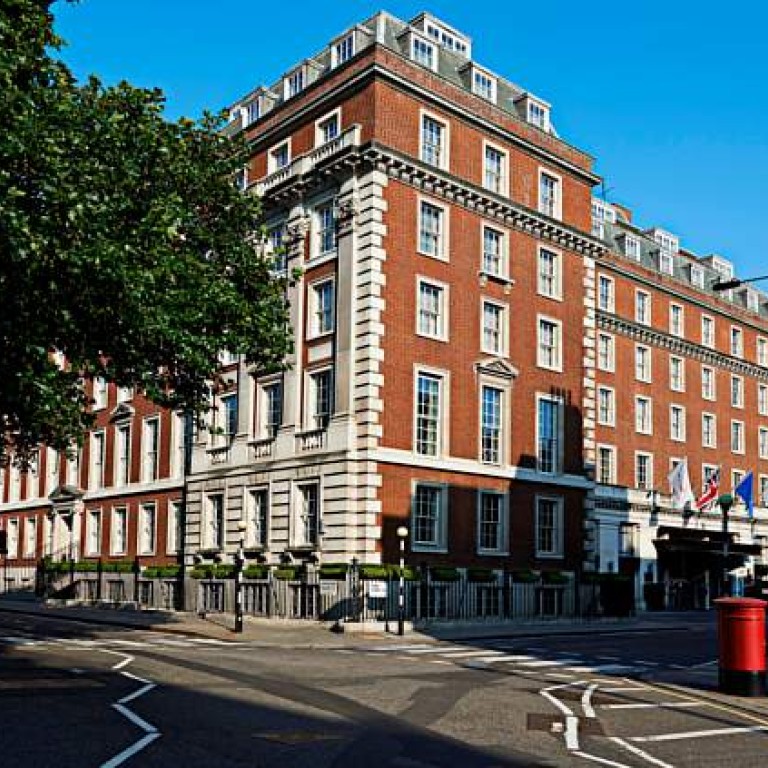
Heavier taxes on homes held in companies make London hotels an attractive option
Prospects for London hotels look good, with limited stock and growing disparity between new room supply and demand
Overseas investors in London's residential market face higher taxes for homes held in a company and uncertainty on future policy.
For those still wishing to hold London property in a company, hotels look increasingly attractive.
To date, new legislation has been enacted to target "enveloped dwellings", principally to prevent tax avoidance.
However, there is growing pressure on the British government to take the heat out of the residential market, and this may well result in further measures designed to prevent a boom-bust scenario.
In this respect, there are many parallels with the Hong Kong market, though market and legislation in London seem to be one step behind.
Residential property will be taxed if held in a company or other envelope through higher stamp duty land tax and the annual tax on enveloped dwellings (ATED).
ATED now applies to properties over £2 million (HK$26 million) in value, with an annual tax of between £15,400 and £143,750.
However, new lower bands will apply; from April 1 next year, £7,000 per annum for properties worth between £1 million and £2 million; and from April 1, 2016, £3,500 for properties worth between £500,000 and £1 million.
With stamp duty set at 15 per cent for these properties, many investors are beginning to look at their options.
Investors can buy residential property as a British asset, subject to a lower rate of stamp duty (up to 7 per cent for residential property over £2 million); however, as an asset, this property is subject to capital gains tax.
Alternative investment classes, such as hotel, serviced apartments, offices or retail shops, can be placed in special-purpose vehicles - companies that are both tax-efficient and easily managed while offering an element of privacy.
To date there has been a strong, growing representation of mainland Chinese and Hong Kong investors in the London hotel market, but this has been through acquisition of sizeable assets in the main.
According to JLL, Asian investment in the capital's hotel market has risen by 33 per cent compared with the fourth quarter of last year, with private equity firms making up more than a quarter of the total.
Examples include Joint Treasure's recent purchase of the Marriott, Grosvenor Square, for £125.15 million; Cheval Property Management's purchase of serviced apartment, residential and retail block Harrington Court for more than £55 million late last year; Heeton's purchase of the Enterprise Hotel, Kensington, off an asking price of £25 million this year; and Dorsett Hospitality International's acquisition of offices and subsequent gaining of planning consent for hotel use in Aldgate last year. A significant proportion of residential purchases by Hong Kong buyers are off plan, of single residential dwellings and consequently small lot sizes. While residential property represents the traditional entry-level investment class, hotels and serviced apartments are often considered a natural progression for investors.
A small hotel of say 20 letting rooms is likely to cost about £4 million, considerably more than many residential investments; however, there are a growing number of sophisticated investors with larger budgets looking for hotel opportunities.
Economies of scale affect smaller businesses, where the cost of a specialist management team can represent a challenge. Likewise, because the main brands are not interested in small hotels, there have been fewer operators of worth available.
Recently, hotel investment funds and management companies such as Capilon have evolved to meet this challenge, providing reliable, stable management structures and healthy returns, easing the way for new investors with the budget and appetite for hotels.
The yield differential between residential and hotel investments in London is in hotels' favour, with a hotel investment let to a strong covenant yielding as much as 5 per cent.
Examples include Whitbread's Hub by Premier Inn in London's Spitalfields, a forward funding sale at 5 per cent in December last year with practical completion of construction estimated to be in the second quarter of next year; or the Premier Inn, Waterloo, an investment at 4.25 per cent in November last year.
Moreover, unlike residential property, vacant-possession value for a Central London hotel of this type will be at a considerable premium to investment value.
A small hotel in vacant possession without operator can sell for a year's purchase of, say 16.5 times to 17 times profit, equating to about 6 per cent.
Many such businesses are run from properties that were originally built as residential units, and as with much of the hotel sector in London, there is a direct correlation between hotel and underlying residential values.
Consequently capital growth in hotel property often mirrors that of residential, but with higher yields. This can open up the possibility of taking advantage of a change in use to residential.
An example of an investment of this type was Hong Kong-based Richfield Realty's sale last month of the Royal Bayswater Hotel for a reported £35 million - a scheme with planning for 22 high-end flats and ground-floor retail.
Prospects for the London hotel market look good; stock is limited, with an ever-growing disparity between supply of new rooms and strong growth in demand.
This has resulted in high occupancy, which continues to put pressure on room rates, and we see nothing on the horizon likely to halt the trend.
With a stable economic outlook for London, recovery in European capital markets and limited opportunities in the Southeast Asian arena, we expect to see further growth in investment into the London hotel market from Southeast Asia.

